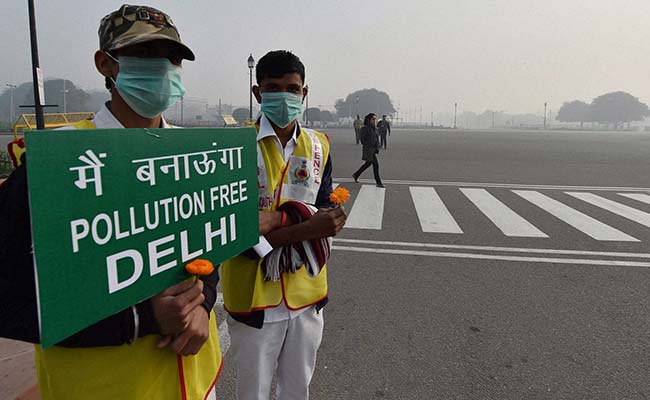The odd-even rule allowing private cars on Delhi's roads on alternate days came into force on January 1 (Press Trust of India photo)
New Delhi:
The experiment to curb the toxic smog in Delhi by banning private cars on alternate days has not gone down well with the high court. Judges today asked the government of Arvind Kejriwal to explain why the trial should last more than a week. Criticizing public transport as "insufficient", people are inconvenienced, the judges said.
The court has asked the government to file an account by Friday on how pollution has been impacted by the new traffic rules, which were introduced on January 1 for a two-week period to cut smog in the world's most polluted capital.
Cars with odd-numbered licence plates are allowed on the roads on odd-numbered dates, and those with even-numbered plates on the other days.
Transport Minister Gopal Rai told reporters that a fortnight's run is necessary to correctly assess the potential of the new restrictions in improving the quality of the city's air. He said the government will present this and other responses in court on Friday. "We have been saying since day one that public transport is not enough," he told reporters, reiterating the government's commitment to improving the number of buses and metro trains for commuters. He also said that Particulate Matter (PM) 2.5 caused by vehicular pollution is down in Delhi by about 30 per cent.
 PM 2.5 or fine particles less than 2.5 micrometres in diameter are linked to higher rates of chronic bronchitis, lung cancer and heart disease after settling into lungs and passing into the bloodstream.
PM 2.5 or fine particles less than 2.5 micrometres in diameter are linked to higher rates of chronic bronchitis, lung cancer and heart disease after settling into lungs and passing into the bloodstream.
A report submitted by the government on the scheme so far was described as "vague" by the court today, which heard a series of petitions related to the traffic rules, including some seeking exemption for lawyers and senior citizens.
Schools have been ordered to remain closed for the period partly so that their buses can be used to ferry commuters to work.
The court has asked the government to file an account by Friday on how pollution has been impacted by the new traffic rules, which were introduced on January 1 for a two-week period to cut smog in the world's most polluted capital.
Cars with odd-numbered licence plates are allowed on the roads on odd-numbered dates, and those with even-numbered plates on the other days.
Transport Minister Gopal Rai told reporters that a fortnight's run is necessary to correctly assess the potential of the new restrictions in improving the quality of the city's air. He said the government will present this and other responses in court on Friday. "We have been saying since day one that public transport is not enough," he told reporters, reiterating the government's commitment to improving the number of buses and metro trains for commuters. He also said that Particulate Matter (PM) 2.5 caused by vehicular pollution is down in Delhi by about 30 per cent.

A report submitted by the government on the scheme so far was described as "vague" by the court today, which heard a series of petitions related to the traffic rules, including some seeking exemption for lawyers and senior citizens.
Schools have been ordered to remain closed for the period partly so that their buses can be used to ferry commuters to work.
Track Latest News Live on NDTV.com and get news updates from India and around the world

